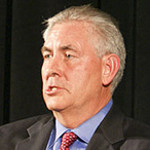 Fitch, Even, Tabin & Flannery LLP will present a free webinar, “Full Disclosure: Bridging the Information Gap Between Inventors and the Patent System,” featuring Fitch Even partner Michael J. Krautner.
Fitch, Even, Tabin & Flannery LLP will present a free webinar, “Full Disclosure: Bridging the Information Gap Between Inventors and the Patent System,” featuring Fitch Even partner Michael J. Krautner.
The webinar will take place on Thursday, April 27, 2017, at 9:00 am PDT / 10:00 am MDT / 11:00 am CDT / 12:00 noon EDT.
In a release, the firm said patents can be extremely valuable business assets, but only as valuable as the information they convey. Before a patent can be monetized, it will be scrutinized by myriad individuals — inventors, attorneys, examiners, judges, juries, and business leaders — each of whom will interpret the patent in the light most favorable to their objective. As a patent filer, it’s vital to ensure inventors provide clear, detailed, and accurate descriptions of their inventions so they’ll withstand scrutiny and generate the optimal return on investment.
Inventors can provide abusiness with a true competitive advantage, but because of the technical and legal complexities involved, attempting to capitalize on their innovations can be both expensive and risky. By educating inventors to recognize patentable innovations, the expense can be reduced and the risk mitigated.
This webinar will provide tips and strategies on how to
• Educate inventors on how to identify viable inventions and distinguish them from unpatentable ideas and concepts
• Ask the right questions to get inventors to divulge the unique details of an invention
• Tell a story that clearly illustrates why a patent is warranted
CLE credit has been approved for California and Illinois and is pending in Nebraska. Other states may also award CLE credit upon attendee request. There is no fee to attend, but registration is required.
Following the live event, a recording of the webinar will be available to view for one year at www.fitcheven.com.
Register for the webinar.
Join Our LinkedIn Group
 For the past two years, there’s been a new player in the world of employee whistleblower enforcement, writes Evan Gibbs for Above the Law.
For the past two years, there’s been a new player in the world of employee whistleblower enforcement, writes Evan Gibbs for Above the Law.









